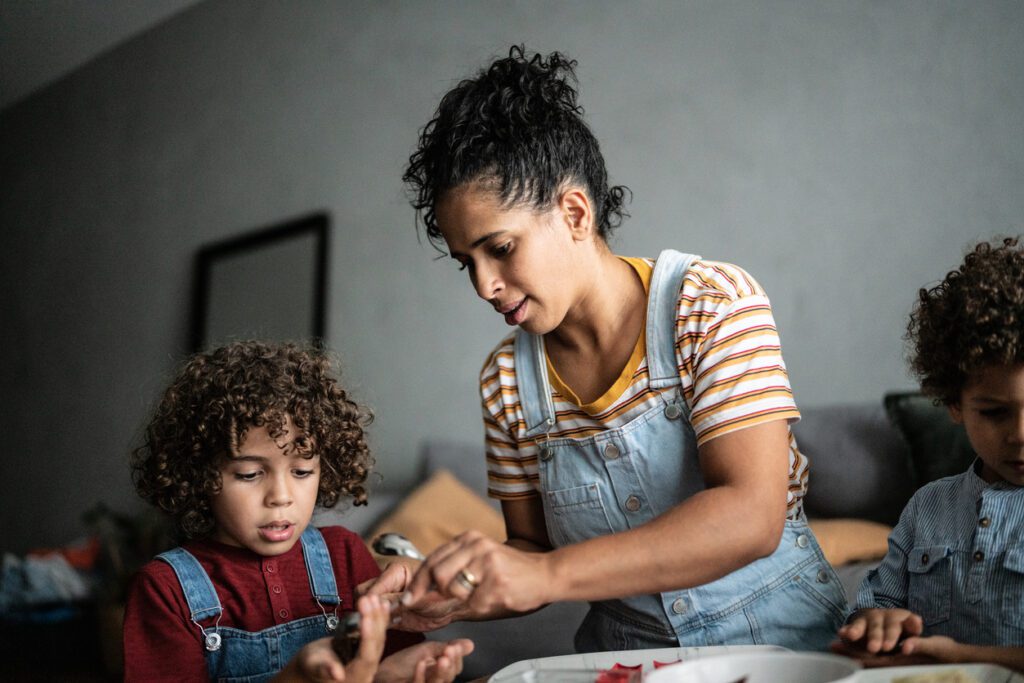IVF as a single woman: Getting pregnant solo

Single women are able to access IVF in Australia. There is widespread support for assisted reproduction as a medical option and different options available. Find out more
IVF as a single woman: What you need to know
Single women are increasingly choosing to start their families solo. In Victoria alone, more than 700 women without a partner chose to have IVF in 2022. Across the country, thousands of people have been helped to create a family through the use of fertility treatments. Through access to donor sperm and assisted reproduction, women can become a parent in the absence of a suitable partner if they choose.
Support groups exist to help navigate the challenges that negotiating fertility treatments and single-parenting can bring. So, considering IVF as a single woman? Here is what you need to know.
Can a single woman have IVF in Australia?
Single women have been able to access IVF in Australia for years. There is widespread support for assisted reproduction as a medical option, and generally great openness in community discussions.
Regulations around IVF and financial support varies state by state. In New South Wales, the Affordable IVF Initiative is available to all people, regardless of their partner status. This provides a rebate of $2000 for eligible applicants for out-of-pocket cost for fertility treatment from an accredited provider.
It has not always been this way. In 2002, the Australian Government banned access to IVF for single and same-sex women in a move that was denounced by the Australian Medical Association and others as discriminatory.
Thankfully, attitudes have now changed dramatically. Research continues to show that the children of single parents and same-sex couples are well-adjusted and have positive parent-adolescent relationships just like those raised in heterosexual couples.

IUI vs IVF for single women?
As a single woman in Australia, you have the option to pursue both IVF (in vitro fertilisation) or IUI (intrauterine insemination) as fertility treatments to help you conceive.
It’s important to note that the choice between IUI and IVF depends on various factors, including your age, overall health, fertility assessment, and the recommendation of your fertility specialist. They will consider your individual circumstances and guide you on the most suitable treatment option.
Intrauterine insemination (IUI)
Intrauterine insemination (IUI) involves placing prepared and concentrated sperm directly into the uterus around the time of ovulation. This involves either monitoring your natural menstrual cycle or inducing ovulation using Letrozole or Follicle Stimulating Hormones and trigger inections (hcg). For both options, ovulation will be monitored using blood tests and transvaginal ultrasounds.
The prepared sperm sample, either from a donor or a known source, is processed in the laboratory to separate healthy and active sperm from the seminal fluid. Then the sperm is inseminated. A thin catheter is used to insert the sperm directly into your uterus, which is a relatively quick and painless procedure.
IVF (In Vitro Fertilisation)
IVF (In vitro fertilisation) involves retrieving eggs from your ovaries, fertilising them with sperm in a laboratory, and if suitable embryos are produced, transferring one to your uterus using a thin catheter.
The first step is taking injections to produce multiple eggs. The injections are pen-like devices with small needles. The medication is self-administered at home, generally into the fat in the stomach area. Once the eggs are mature, they are collected through a minor surgical procedure called egg retrieval. Then in the lab, there is the attempt to fertilise the egg.
The eggs are combined with sperm through either conventional IVF or intracytoplasmic sperm injection (ICSI). Conventional IVF involves placing the eggs and sperm together in a culture dish, while ICSI involves injecting a single sperm directly into each egg.
The fertilised eggs (the embryos) are then monitored to check their development. Fertility specialists will assess their quality before deciding on the optimal time for embryo transfer. Generally only one embryo is transferred to avoid the risk of multiple pregnancy.
10 days later, you will take a pregnancy test to determine if the treatment was successful.
What is the cost of IVF for a single woman
The cost of IVF for a single woman in Australia can vary depending on several factors, including the specific clinic you choose, the type of treatment required, any additional services or procedures, and whether you are eligible for any government subsidies or private health insurance coverage.
Medicare eligibility for women pursuing solo motherhood can be discussed with your fertility specialist based on your individual circumstances. Sperm donation in Australia is legally required to be altruistic in nature, but the person receiving the donated sperm is responsible for the costs relating to the administration of donor services through a clinic, as well as the treatment costs for IUI or IVF.
How do single women access sperm donors?
It’s recommended to consult with a fertility specialist or reproductive lawyer who can provide guidance on the legal, medical, and ethical aspects of using a sperm donor as a single woman. They can help you navigate the process, ensure your rights and the donor’s rights are protected, and provide support throughout your journey to parenthood.
Legal advice is strongly recommended to understand the rights and responsibilities of all parties involved, and to establish a formal agreement or seek appropriate legal documentation.

Types of sperm donors
Known donors
An option for single women is to use a known sperm donor, such as a friend or appropriate family member without a genetic connection. Using a known donor program such as Adora’s, with a sperm donor known to the recipient offers benefits including reducing the cost of using an overseas sperm bank and avoiding the wait lists frequently associated with needing a clinic-recruited donor.
Sperm banks
Fertility clinics in Australia sometimes have their own sperm banks or work in collaboration with sperm banks. A shortage of available sperm donors has been exacerbated since the Covid19 pandemic, leading some solo mums by choice to consider riskier alternatives.
Informal or unregulated sperm donors
There are platforms and networks online that connect individuals seeking sperm donors with potential donors. Adora Fertility cautions against informal sperm donation, due to risks associated with a lack of screening of donors, potential breaches of family limits, potential pressure to undergo natural insemination (intercourse), and complications relating to legal parentage of resulting offspring.
Legal considerations for single women and IVF
Single women who conceive their child using assisted reproduction and donated sperm should be aware of the current and future legal considerations. Children who are born from donated sperm are legally entitled to know their genetic parents once they turn the age of 18.
All sperm donors need to consent to the release of identifying details to Adora Fertility and State donor registers, if applicable. This includes the donor’s medical and family history, identifying information, the assumed gender at birth and number of persons conceived using the sperm. Formal registers hold this information in each state.
Support for single women and IVF
Support groups such as Solo Mums by Choice Australia offer guides, tips and share stories of diverse women’s experience as single women experiencing fertility treatments, and parenting by themselves.
Women undergoing fertility treatment through a fertility provider such as Adora Fertility, have access to experienced counsellors who can help them navigate the journey alongside their medical team.
Considering your options as a single woman? For expert, supportive answers contact Adora Fertility. We have locations in New South Wales, Victoria, Queensland and Western Australia.


